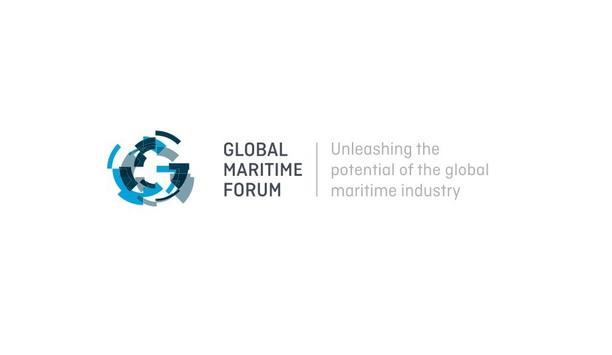Equinor ASA - Experts & Thought Leaders
Latest Equinor ASA news & announcements
Technology group - Wärtsilä has signed a contract with Norwegian shipowner - Eidesvik to supply the equipment for the conversion of an offshore platform supply vessel (PSV) to operate with ammonia fuel. The vessel, ‘Viking Energy’, which is on contract to energy major - Equinor, is scheduled for conversion in early 2026 and is expected to start operating on ammonia in the first half of 2026, becoming the world’s first ammonia-fuelled in-service ship. In addition to chartering the vessel, Equinor contributes with financing for the conversion. Wärtsilä will then supply the engine and complete fuel gas supply system and exhaust after-treatment needed for the conversion, making it also the first vessel to use Wärtsilä’s recently released ammonia solution. New global regulations Ammonia will play a significant role in enabling the shipping industry to reduce its emissions Ammonia has emerged as a promising alternative fuel as the shipping industry looks for more sustainable fuel options. With new global regulations having set a clear destination for shipping – net zero emissions by mid-century – ammonia will play a significant role in enabling the shipping industry to reduce its emissions. A recent report by Wärtsilä highlights the role that sustainable fuels will play in achieving this target, which is set by the International Maritime Organisation (IMO). According to the report, existing decarbonisation solutions, such as fuel efficiency measures, can cut shipping emissions by up to 27 percent; however, sustainable fuels, such as ammonia, will be a critical step in eliminating the remaining 73 percent. New generation of sustainable fuels In this context, Håkan Agnevall, President and CEO of Wärtsilä highlights the importance of cross-industry collaboration, said: "In just 25 years – the lifetime of a single vessel – shipping needs to get to net zero emissions. Achieving this will require coordinated action by all maritime industry stakeholders to bring about the system change needed to accept a new generation of sustainable fuels." He adds, "With this new contract, together with Eidesvik, Wärtsilä is proud to be at the forefront of this movement. Decarbonisation is front and centre of our strategy and we are committed to developing and delivering sustainable solutions which not only ensure the viability of sustainable fuels, but also their safety." Wärtsilä dual-fuel engine technology The conversion of Viking Energy is the latest project in the history of the union between three companies Wärtsilä, Eidesvik and Equinor share a commitment to support the industry’s efforts to decarbonise. The conversion of Viking Energy is the latest project in a history of collaboration between the three companies. Viking Energy has an impressive record of demonstrating new environmental technologies, which includes three 'world records'. For example, using Wärtsilä dual-fuel engine technology, Eidesvik was the world’s first shipowner to have an LNG-powered offshore platform supply vessel. It also received the world’s first Battery Power notation, given to Viking Energy, for a battery system installed by Wärtsilä. Research and innovative solutions This latest partnership is a result of the ‘Apollo’ project, which is co-funded by the Horizon Europe framework programme. The programme aims to accelerate the transition towards a climate-neutral Europe by 2050 through funding projects, such as Apollo, which contribute research and innovative solutions in various sectors related to climate, energy and mobility. "Close collaboration throughout the value chain is key to succeed in the green transition. Eidesvik has a unique history of pioneering the implementation of innovative emission-reducing technologies, and we are proud to spearhead yet another ground-breaking project together with Wärtsilä and Equinor," said Gitte Gard Talmo, CEO & President of Eidesvik Offshore. Wärtsilä 25 Ammonia engine In addition to the Wärtsilä 25 Ammonia engine, Wärtsilä will supply the complete ammonia solution, including its AmmoniaPac Fuel Gas Supply System, the Wärtsilä Ammonia Release Mitigation System (WARMS), and a selective catalytic reduction (SCR) system designed for ammonia. A service agreement, covering maintenance, is a highly essential part of the deal. The conversion project is planned for early 2026, with final commissioning expected in Q2 2026.
The CO2 Efficient Transport via Ocean (CETO) joint industry project (JiP) concluded recently with the release of a report setting out the findings of the Technology Qualification performed in the study. The project partners, which included Equinor, Gassco, Shell, TotalEnergies, and DNV, have found that there are no technological showstoppers to a low-pressure CO2 ship transport chain. CETO was funded by the project partners and Gassonova through the CLIMIT-Demo programme. Carbon Capture and Storage (CCS) For Carbon Capture and Storage (CCS) to play a significant role in helping the world reduce emissions, transporting large amounts of CO2 will be vital. Pipelines will be an option, but where the capture source and storage sites are unable to be easily connected, ship transport will be crucial. To achieve the scale required for commercial viability, however, low-pressure ship solutions (approximately 7 bar at -49ºC) are regarded as an attractive alternative. CO2 ship transport value chain The project partners examined fundamental aspects of the CO2 ship transport value chain During the Technology Qualification process, the project partners examined fundamental aspects of the CO2 ship transport value chain. The production of liquid CO2, the characteristics and impurities in liquid CO2 that could affect transport, the plant concept, cargo handling, to the basic design of a 30,000 m3 Liquid CO2 carrier were all evaluated and assessed. Testing campaign CETO demonstrated that shipping CO2 at low-pressure conditions is feasible and that the technology is ready for first use. In terms of the vessel design, the activities show that a dedicated LCO2 carrier could be designed according to the relevant international rules and regulations, including the IMO IGC code and the DNV ship rules for global strength and stability. The testing campaign on a medium-scale pilot plant demonstrated that cargo handling operations in the range of 6 to 9 barg could be carried out without dry ice formation. Design accuracy and suitability There were aspects of the transport chain that would require particular attention during project development Finally, the accuracy and suitability of design process simulation tools were benchmarked with good agreement against experimental tests, and the benefits of dynamic process simulations on a full-scale design case were demonstrated. However, there were aspects of the transport chain that would require particular attention during project development, such as material selection for cargo tanks, fatigue, and sloshing loads. Low-pressure solution Erik Mathias Sørhaug, Business Development Director CO2 Shipping at DNV, said, “It has been an honour for DNV to lead this JIP initiated by the four CCS pioneers, TotalEnergies, Shell, Equinor, and Gassco." "The project has demonstrated that a low-pressure solution is technically feasible which again will enable low-cost transportation solutions for CCS projects.” Economic viability Lee Teng-Huar, General Manager of Maritime Operations, Asia Pacific and Middle East at Shell, said, “The conclusions from the CETO JIP signify a crucial milestone in advancing CCS technology." "The optimisation of low-pressure liquid CO2 transportation can help bolster the economic viability of CCS initiatives and fast-track the ongoing journey towards a more sustainable and lower-carbon future for the industry.” CO2 transport and injection capacity Ola Miljeteig, Vice President, of R&D CCS solutions at Equinor, said, “Equinor is excited that the technology risks around low-pressure CO2 ship transport are now reduced." "The low-pressure technology is relevant for reaching our increased ambitions of 30-50 million tons per year of CO2 transport and injection capacity by 2035.” Comprehensive, optimal, and flexible transport Svein-Erik Losnegård, Vice President of Research and Development at Gassco, said, “Gassco is pleased to contribute to the development of low-pressure CO2 ship transport technology and to see that the CETO project has succeeded in reducing the associated technology risks." "Maturity and readiness of different transport solutions will be of great value in the establishment of a comprehensive, optimal, and flexible transport system in the CCS value chain.” Carbon neutrality Marie-Noelle Semeria, TotalEnergies Chief Technology Officer, TotalEnergies, said, “Bridging Carbon capture with storage or usage requires a safe and efficient CO2 transport by ship as an alternative to pipe." "TotalEnergies is proud of the milestone demonstrated by the CETO Joint-Industry-Project covering the low-pressure CO2 transport chain evaluation and derisking assessment. This milestone paves the route of the company towards carbon neutrality together with the society.”
At the 2023 Annual Meeting of the Sea Cargo Charter Association in Copenhagen, the 36 Signatories elected new Steering Committee members and discussed past and future activities. In total, 12 member companies were elected to the Steering Committee to coordinate the Association on behalf of its members. The Sea Cargo Charter is a framework for assessing and disclosing the climate alignment of chartering activities. Charterers and cargo owners play an important role in the industry’s path to zero emissions. Transparency and standardisation Transparency and standardisation are important steps on that journey for both the cargo owners and ship owners, because it enables them to have a data-based conversation on their carbon footprint. Association publishes its Annual Report, which details the climate impact of the member companies “I am honoured to be elected as Chair of the Steering Committee, and excited to continue all the great work that is already underway. The mindset regarding climate alignment has changed faster than we could have imagined in the past few years, and I look forward to continuing the work on global standardised and transparent emission reporting which will assist everyone in pushing shipping’s green transition forward,” says Rasmus Bach Nielsen, Global Head, Fuel Decarbonisation, Trafigura and new Chair of the Sea Cargo Charter Association. Each year, the association publishes its Annual Disclosure Report, which details the climate impact of the member companies. The next report will be published on June 14. Improvements and interventions Rasmus Bach Nielsen is replacing Jan Dieleman as Chair, stepping up from Vice Chair. Claire Wright (Shell) was re-elected as Treasurer of the Steering Committee. The association has grown significantly since it was established in October 2020, but the ambition is to get many more new members, for example from the mining industry and from a wider geographical spread. “We have accomplished so much with the Sea Cargo Charter in the past few years. Establishing a common, global baseline to assess and disclose chartering activities’ climate alignment is a critical step in the decarbonisation efforts of the industry as it provides insights for continuous improvements and interventions. I am confident in the newly elected Steering Committee and look forward to following future progress,” says Jan Dieleman, President, Cargill Ocean Transportation. Expanding the membership Sea Cargo Charter is a critical framework that brings transparency, standardisation" Eman Abdalla, Global Operations Director, Cargill Ocean Transportation was elected as the new Vice Chair of the Association, and she looks forward to expanding the membership. “The Sea Cargo Charter is a critical framework that brings transparency, standardisation, and alignment to the shipping industry. I am honoured to be elected as Vice-Chair and look forward to working tirelessly to expand our membership base across industries and geographies to achieve our goal of widespread adoption, making zero carbon shipping a reality,” she says. Sea Cargo Charter Association Steering Committee The Sea Cargo Charter Association Steering Committee counts 14 member companies. The Steering Committee now consists of: Rasmus Bach Nielsen, Trafigura (Chair); Eman Abdalla, Cargill Ocean Transportation (Vice Chair); Claire Wright, Shell (Treasurer); Engebret Dahm, Torvald Klaveness; Hans Christian Jensen, ADM; Heidi Aakre, Equinor; Henrik Røjel, Norden; Jeff Wakker, Viterra; Jürgen Willemsen, Dow; Justine Clark, Shell; Marcio Valentim Moura, Bunge; Martin Viquesnel, Louis Dreyfus Company; Matt Turns, Chevron; Patrick Heise, ADM; Peter Lye, Anglo American; Raghav Gulati, Anglo American; Seb Landerretche, Louis Dreyfus Company; Sebastien Roche, TotalEnergies. Global Maritime Forum act as the secretariat for the Sea Cargo Charter.






